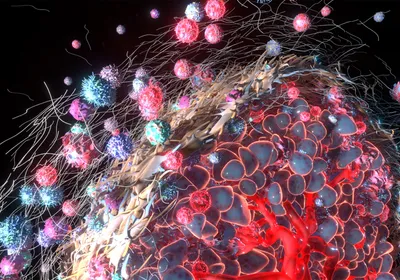 WIKIMEDIA, PHAROSObesity can contribute to a poor prognosis for colorectal cancer patients, including those who have the tumor microsatellite instability (MSI) marker associated with better disease outcome, according to an unpublished analysis of data from a prospective study involving nearly 5,000 patients.
WIKIMEDIA, PHAROSObesity can contribute to a poor prognosis for colorectal cancer patients, including those who have the tumor microsatellite instability (MSI) marker associated with better disease outcome, according to an unpublished analysis of data from a prospective study involving nearly 5,000 patients.
Researchers working with the American Cancer Society’s Tumor Repository found that patients who had a high body-mass index (BMI) before being diagnosed with colorectal cancer were more likely to have a poorer prognosis than those who had a healthy BMI. The same applied to even prediagnosis high-BMI patients who had MSI-high tumors. The negative impact of elevated BMI on colorectal cancer prognosis appeared to trump the so-called “protective” effects of elevated MSI, the team found.
“It was interesting to see the magnitude of the change in these groups,” said Peter Campbell, the director of Tumor Repository, who is presenting his team’s findings at the American Association for Cancer Research (AACR) annual meeting in San Diego, California, today (April 9). “We know obesity is associated with ...























